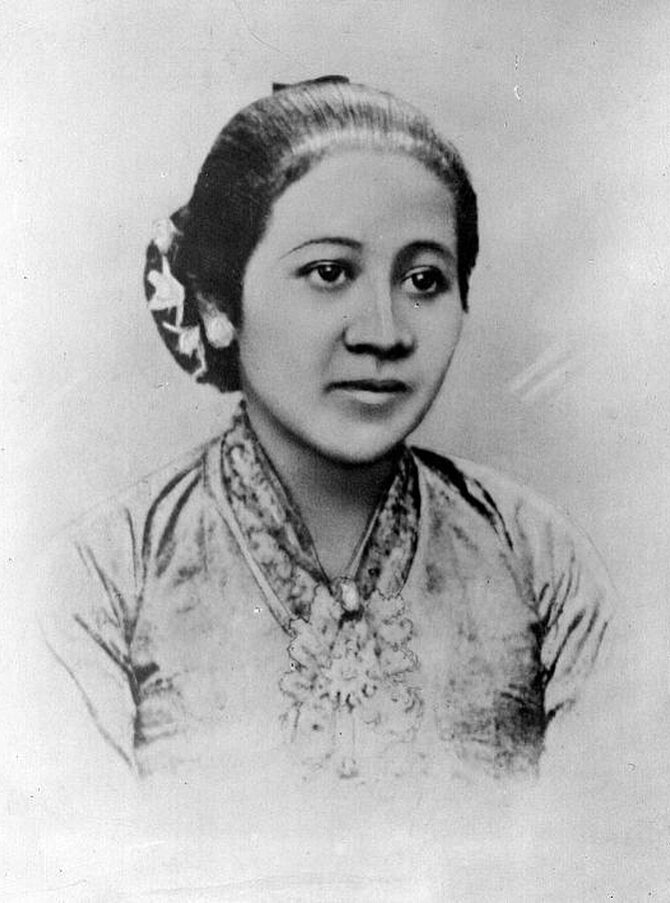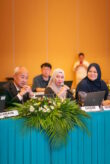Every year, on April 21, Indonesia celebrates the life and work of national heroine Raden Adjeng Kartini. Born on that day in 1879, the Javanese princess is considered as an important figure in the Indonesian women’s empowerment movement. She also played a role in the national struggle for independence. Inspired by this, we want to portray three Indonesian women, that play an important role in the Indonesian photovoltaic (PV) sector. All of them are involved in the project “Strengthening the Quality Infrastructure for the PV sector in Indonesia”.
Dini Suryani works as a metrologist at the Photometry Radiometry Laboratory, National Measurement Standards, National Standardization Agency of Indonesia (SNSU-BSN). Her passion for metrology led her desire to contribute to the development of the renewable energy sector. “I was drawn to the PV sector because of its potential to address climate change and provide sustainable energy solutions”, says Dini. She believes that quality is essential for the success and sustainability of any industry and ensuring it is crucial for the performance, safety, and longevity of PV systems. When it comes to women in this sector, Dini sees them as an integral part of the workforce, and their contributions as essential for the development and implementation of PV systems. “I believe that women can play a significant role in promoting quality in the PV sector by contributing diverse perspectives and expertise”.
Nelly Malik Lande sees it similarly, when she says: “If women are given education and training, they can carry out PV quality testing, and they can even be involved in various activities ranging from design preparation to operations, maintenance, and monitoring of installed PV systems”. Nelly works as a government employee at the National Research and Innovation Agency (BRIN), more precisely at LKE, a PV module testing laboratory providing services for the Indonesian PV sector. Nelly Lande and her team have contributed to the quality of the PV sector by conducting feasibility studies of PV systems in remote areas of Indonesia, quality testing of PV modules in the laboratory and the commissioning of installed PV systems based on requests from relevant parties. According to Nelly, what led her to her job was her willingness to learn, and self-confidence.

“Women have an important role in the workforce, which not only benefits themselves but also their families, communities, and countries. Successful women can inspire other women, especially in achieving equality and success”, says Olivia Sary, standardization analyst at National Standardization Agency of Indonesia (BSN). Since she first started working at BSN, she was assigned to develop standards related to mechanics, energy, and construction. Then in 2016, she received a scholarship to study further about PV module testing at the Photovoltaic Institute Berlin, Germany. “Since that training, I have become increasingly interested in the PV sector, and it also inspired me to obtain a scholarship for a master’s degree at the University of Indonesia in the energy department, with my thesis focusing on PV”, says Olivia, who has been focused on the development of Indonesian National Standards (SNI) for the PV sector and has been building good relationships with various stakeholders. Her current job aligns with her interests and passion. “I can stay updated on the technological advancements and trends in PV both in Indonesia and globally. This provides an exciting challenge and drives me to continually develop professionally”.
These possibilities were not always given to women. Around the turn of the last century what is now Indonesia was known under the colonial name of the Dutch East Indies. Thanks to her more progressive father, the Bupati of Jepara (Central Java), Raden Adjeng Kartini was one of the few privileged girls of that era, allowed to visit a school. Although being royal, she could not escape her fate within the culture of that time. According to the customs back then, she was rarely allowed to go outside the house. Thus, the only way to stay in touch with her European friends – she was fluent in Dutch – was by sending letters. In one of those letters, she was told about the more emancipated life of women in Europe, which led to her realizing: “My country would do so much better, if women received a school education!”.
Then in 1903 Raden Adieng Kartini opened the first school entirely for women. Unfortunately, she passed away just one year later, at the age of 25, on September 17 in Rembang. Many schools are named after Kartini and since 1963 the “Hari Kartini” or “Kartini Day” is celebrated in her honor. Kartini is an example of several strong Indonesian women who have contributed to the struggle for independence and equal rights for women and men.
“Kartini inspires me by her determination and courage to fight for women’s rights and education, despite the challenges she faced during her time. Her legacy continues to inspire women to pursue their dreams and strive for excellence, regardless of the obstacles they may encounter”, says Dini Suryani. “The way we live our lives today is of course the result of what Kartini has done in the past. I admire Kartini because in her day it was very rare for women to possess an independent spirit”, adds Lande. “Kartini serves as a good example for me to always be diligent and enthusiastic in seeking knowledge, developing skills, daring to express opinions, and having confidence”, says Olivia Sary finally.
Cover image: Unknown artist/ Collectie Wereldmuseum (v/h Tropenmuseum), part of the National Museum of World Cultures/ Creative-Commons-Lizenz: CC BY-SA 3.0.








